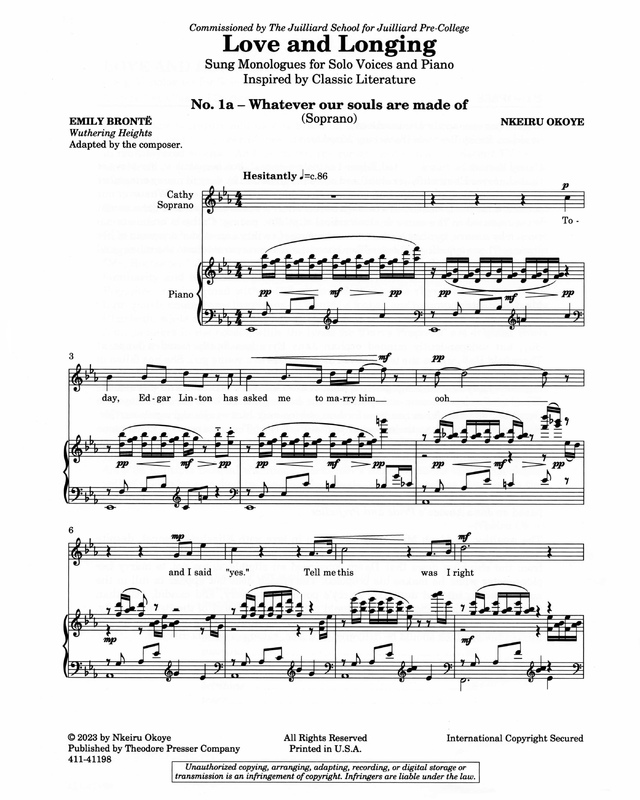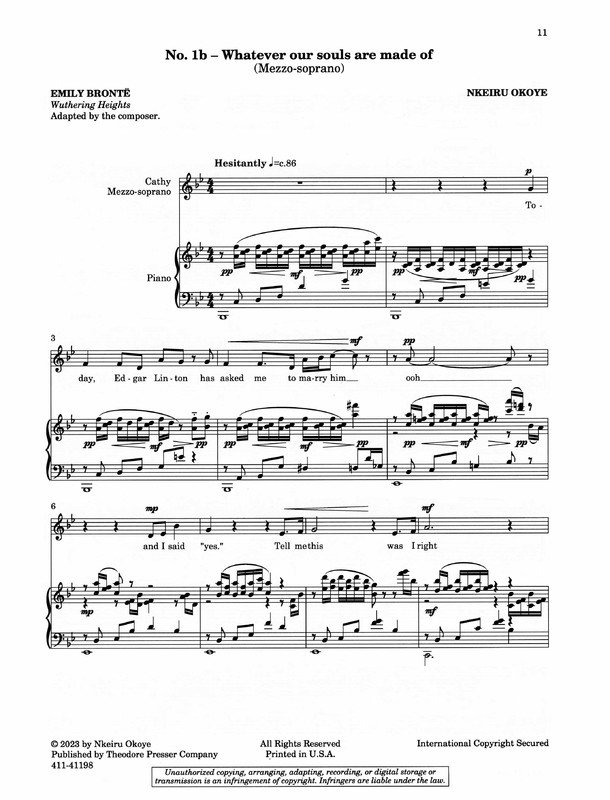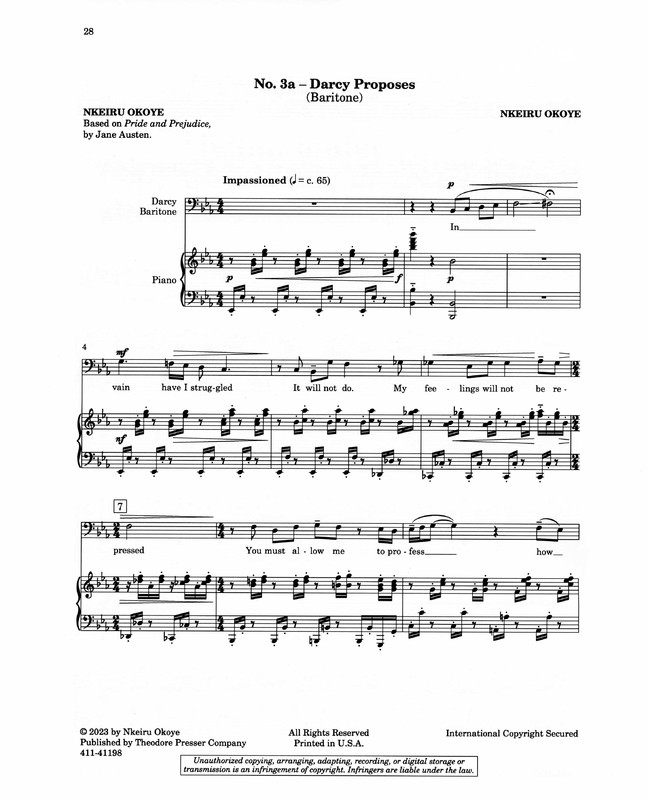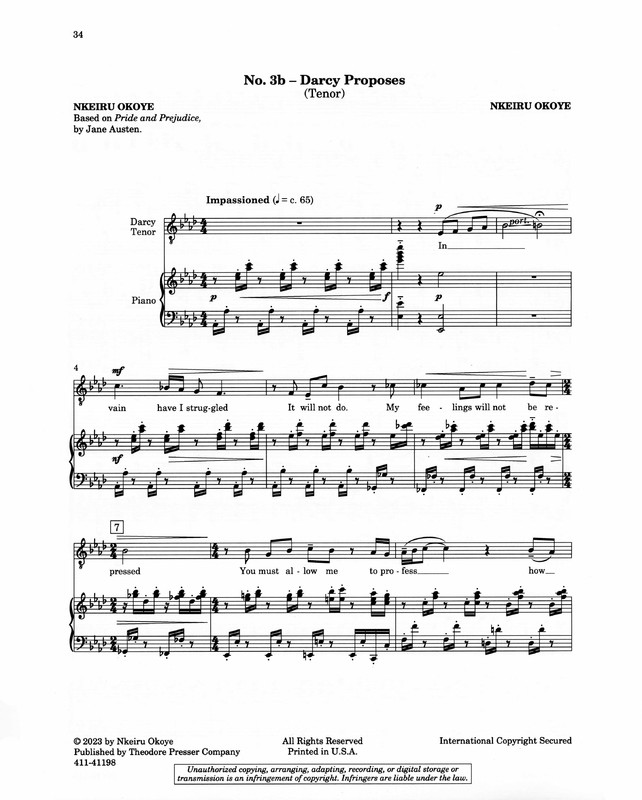Love and Longing
Item
-
Score title
-
Love and Longing
-
Composer
-
Nkeiru Okoye
-
Instrumentation
-
Soprano voice, mezzo soprano voice, baritone voice, piano
-
Soprano voice, mezzo soprano voice, tenor voice, piano
-
Soprano voice, piano
-
Mezzo soprano voice, piano
-
Tenor voice, piano
-
Baritone voice, piano
-
Program note
-
"I love classic literature and movies based on the classics. Great plot lines, complex characters, and the power of love across social and economic boundaries displayed in multilayered stories. (And, of course, the corsets and crinoline.) Recent TV series Ike Netlix's 'Bridgerton' have succeeded in bringing these kinds of stories back to mainstream audiences, illustrating that their universal themes endure even today.
Each sung monologue in LOVE AND LONGING is drawn from a climactic moment in a work of classic literature. 'Whatever our souls are made of' contrasts Cathy's frozen commitments to social expectation and detached feelings toward her fiancé Edgar Linton with her overwhelming love for Heathcliff in Wuthering Heights. In 'Mr. Rochester,' Jane Eyre declares her feelings for her employer with uncommon familiarity and boldness. Finally, Mr. Darcy's proposal to Elizabeth in Pride and Prejudice is reimagined with a Gilbert and Sullivan-like rhyme scheme, as Darcy humorously enumerates the reasons it would be foolish and improper for him to marry Elizabeth, while asking for her hand. The first two texts are taken almost verbatim from passages in the novels, while the lyrics for 'Darcy Proposes' are original, freely adapted from several passages.
LOVE AND LONGING was conceived as a single work in three parts, to be performed in succession by three different singers. However, performances of the set by two singers instead of three, or of monologues as standalone pieces, are also permissible. The parts were originally written for soprano, mezzo-soprano, and baritone respectively, with alternate versions for mezzo-soprano, soprano, and tenor added later.
These arias are well within reach for college students and young professionals, and draw on multiple musical traditions. Performer's interpretations of the monologues will of course be enriched by reading the novels, and by watching the movies they inspired."
--Nkeiru Okoye
 Nkeiru Okoye
Nkeiru Okoye




